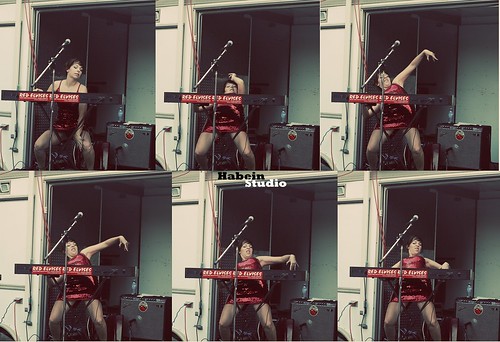I found myself questioning the way in which we dismiss the value of an artist's work -- Even, at times, going so far as to say they aren't truly an artist. I find this worrisome in that in dismissing another artist's work as having no value,, where does that leave my own work? If I am ready to dismiss the value to be found in another endeavor, what is to stop that person from dismissing the value to be found in mine? The answer is nothing. That brought me, in a round-about way, to the question of the value of the art critic. What is it that makes us listen to the opinion on the relative quality and worth of a particular artwork or artist of a select few individuals? Via both SPOKE(a)N(e) Magazine and Electric City Creative (not to mention this very blog) I have acted as an art critic of sorts. What is my place in all of this?

I've spent some time contemplating this and I think I've come to some level of resolution, at least for myself. A long while ago, the art world was something that had a certain cost of entry, or at the very least, individuals and organizations that held the keys to the kingdom. Either artists went to school and entered the art world as a professional under the guise of a craftsperson or a servant of a church or state, or they toiled away until someone with money (i.e. a sponsor) took them under their wing and exposed the world to the work that the artist was doing. Now, there is hardly any cost of entry. We can throw paint on a canvas, take a picture of it, put it up on the internet, call ourselves artists, and expose the world to our brilliance (or lack thereof). Thus, in the modern art world, the lack of "gatekeepers" raises the importance of the art critic to prior unheard-of levels. The art critics of the world, if they are doing their job as they should, are telling others what is out there that is wonderful, and when necessary, telling the world what still needs more thought or time to gestate. A quality art critic is instructive and constructive rather than destructive. A quality art critic critiques the work, without dismissing it. Dismissal in the art world, as in school, slows or even stops learning. The art critic is the cheerleader for the art world. And in being a cheerleader, an art critic is the post-modern gatekeeper. A gatekeeper that leaves the gates open so you can come and go as you please but hands maps out as you enter. That is, if (and this is a huge if) they are doing their job properly.

But more importantly, in the modern art world, consumer has also become critic. The consumer is the one who transfers their love and knowledge of art on to their circle of friends and acquaintances far more frequently than the professional critic. In truth, the job of professional critic has become quite rare. We trust those who we personally know, more than we trust others -- who, while they may know more about the subject, know less about our individual tastes. As such, it becomes even more important that no individual dismiss work outright. Debating the merits and intent of art is a welcome exchange as it makes us think more deeply about the process and the consumption of art itself. But dismissal of art doesn't serve any positive purpose.
Beyond the damage that dismissal can cause, I think it is important for us to look inward at why we tend to dismiss things. More often than not, it is simply because the work of an artist is not to our individual taste.
I'm not saying Justin Bieber's last album was filled with deep meaning... but I'm also not saying it wasn't. The fact of the matter is, "the Biebs" is not to my taste, so I've never taken the time to delve deeply into his catalogue, subject matter, or focus. I couldn't tell you what his music is influenced by or strives towards. As such, I'm not much of a critic of his work. I think most people who dismiss Lady Gaga, or any other artist of her sort, do so because they don't truly know the work being presented.

When we say "I prefer my music to have more meaning," what we're truly saying is either "I prefer a different variety of music and thus haven't given proper consideration to the meaning of this artist or this song," or "I prefer meaning in musical genres I don't care for to be spoon-fed to me so as not to make me listen any more than I have to."
When we say "I don't think splattering paint on a canvas is art," what we are truly saying is, "I don't find any personal meaning within this work and thus dismiss it as art in my eyes."
The problem with what we say vs. what we mean is that the dismissal of value closes a gate that should remain open. We should be in a golden age of creation. We should be entering a post-modern renaissance. That can't happen if we close those gates that have been opened for us only in this modern era.
Critique, don't dismiss.
For further thoughts on the subject of arts criticism (and more defense of Lady Gaga, believe it or not), please take some time to read this post by Spoken Spokane editor, Michael McMullen.

No comments:
Post a Comment